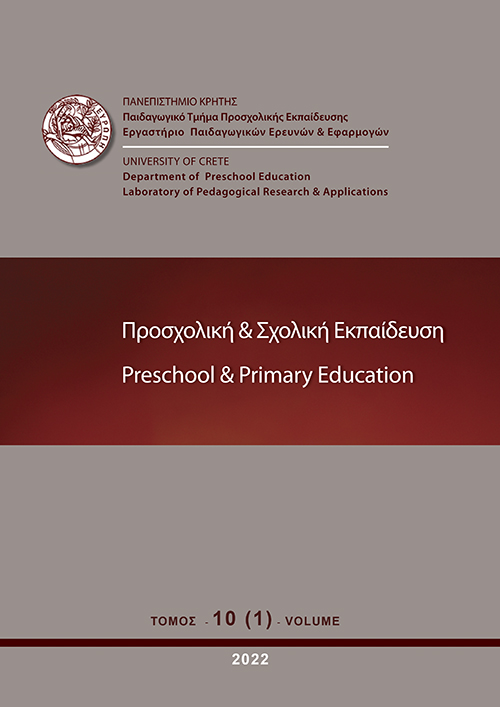Preschool teachers' perceptions of the requirements of self- reflection

Abstract
This article examines preschool teachers' perceptions of the requirements of a successful self-reflection. According to the literature, teachers must have certain characteristics and certain skills in order to reflect effectively. Specifically, to have the ability to observe the problematic situation they face, to describe it, to analyze it in the individual elements of which it is composed and to evaluate all the information in order to come up with possible solutions. Still, to have open horizons, examining all the views and information from whatever source they come from, to participate wholeheartedly in the self- reflective process, to constantly judge their actions, to understand the consequences of their decisions and actions, to seek their lifelong learning and their personal and professional development. The research lasted four weeks and involved 47 preschool teachers serving in public kindergartens in Western Greece. A section of a weekly self- reflection diary designed for doctoral research was used to extract the data. In order to ensure a more complete understanding of the issue under consideration, the research of mixed methods for the analysis of empirical data was followed. The NVivo-8 quality analysis software and the SPSS statistical package were used. The results of the study showed that as the weeks to complete the self- reflection diary progress, preschool teachers report more and more criteria-requirements, which are identified in Dewey theory as key elements in the self-reflection process.
Article Details
- How to Cite
-
Κοκκόση Α., Πούλου Μ., Κουστουράκης Γ., & Χανιωτάκης Ν. (2022). Preschool teachers’ perceptions of the requirements of self- reflection. Preschool and Primary Education, 10(1). https://doi.org/10.12681/ppej.26153
- Section
- Articles

This work is licensed under a Creative Commons Attribution-NonCommercial-ShareAlike 4.0 International License.
Authors who publish with this journal agree to the following terms:
- Authors retain copyright and grant the journal right of first publication with the work simultaneously licensed under a Creative Commons Attribution Non-Commercial License that allows others to share the work with an acknowledgement of the work's authorship and initial publication in this journal.
- Authors are able to enter into separate, additional contractual arrangements for the non-exclusive distribution of the journal's published version of the work (e.g. post it to an institutional repository or publish it in a book), with an acknowledgement of its initial publication in this journal.
- Authors are permitted and encouraged to post their work online (preferably in institutional repositories or on their website) prior to and during the submission process, as it can lead to productive exchanges, as well as earlier and greater citation of published work (See The Effect of Open Access).


